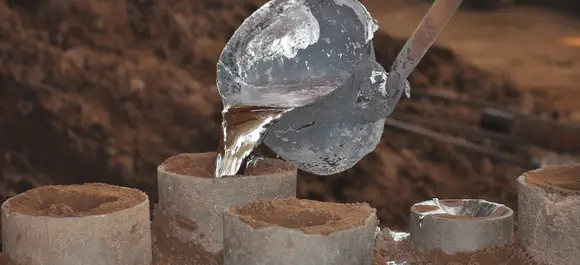Mobile:+86-311-808-126-83
Email:info@ydcastings.com
Innovations and Techniques in Aluminum Casting for Enhanced Manufacturing Efficiency
Aluminum Casting An Overview
Aluminum casting is a crucial manufacturing process that has gained immense popularity in various industries due to its versatility, lightweight nature, and remarkable mechanical properties. This process involves pouring molten aluminum into a mold to create different shapes and parts that meet specific engineering standards. It plays a vital role in sectors such as automotive, aerospace, electronics, and construction, among others.
The Process of Aluminum Casting
Aluminum casting encompasses several methods, each tailored for different applications and requirements. The most common casting processes include sand casting, die casting, and investment casting.
1. Sand Casting This is one of the oldest and most widely used methods. It involves creating a mold from a mixture of sand and a binding agent. Once the mold is formed, molten aluminum is poured into it. After the aluminum solidifies, the sand mold is broken away to reveal the cast piece. Sand casting is ideal for producing large parts with complex shapes and is particularly cost-effective for small production runs.
2. Die Casting In this method, molten aluminum is injected under high pressure into a metal mold. This technique allows for the production of high-precision components with excellent surface finishes. Die casting is mainly used for high-volume production due to its ability to produce parts quickly and consistently. However, it typically comes with higher initial costs for the molds.
3. Investment Casting This process involves creating a wax pattern that is coated with a ceramic material to form a mold. Once the mold is heated, the wax melts away, leaving a cavity for the molten aluminum. Investment casting is ideal for producing intricate and detailed shapes with excellent dimensional accuracy. It is commonly used in the aerospace and medical industries, where precision is paramount.
Advantages of Aluminum Casting
Aluminum has several inherent properties that make it an excellent choice for casting. Firstly, it is highly malleable, allowing for the production of complex shapes without compromising structural integrity. Additionally, aluminum is lightweight compared to other metals, which is crucial in industries where weight reduction can lead to improved efficiency and performance.
aluminum casting

Another significant advantage is aluminum’s resistance to corrosion. This characteristic ensures that aluminum cast products have a long lifespan, particularly in harsh environments. Furthermore, aluminum has good thermal and electrical conductivity, making it suitable for a wide range of applications, from automotive engines to electrical housings.
Application Areas
Aluminum cast components are found in numerous applications across diverse industries. In the automotive sector, aluminum castings are extensively used in engine blocks, transmission housings, and structural components, contributing to vehicle weight reduction and improved fuel efficiency. In aerospace, aluminum casting is employed to manufacture critical parts such as aircraft frames and engine components, where safety and performance are essential.
The electronics industry also benefits from aluminum castings, particularly in the production of heat sinks and housings for consumer electronics. The lightweight and thermal conductive properties of aluminum make it an ideal material for managing heat in electronic devices.
Environmental Considerations
As industries seek to reduce their carbon footprint and enhance sustainability, aluminum casting plays a role in incorporating recycled materials. The recycling of aluminum is a highly efficient process, requiring only about 5% of the energy needed to produce primary aluminum. This not only minimizes waste but also helps conserve natural resources, making aluminum casting a more environmentally-friendly manufacturing option.
Conclusion
Aluminum casting is a vital process that significantly impacts various industries by providing lightweight, durable, and versatile components. With advancements in casting technologies and materials, the industry continues to evolve, providing innovative solutions to meet the growing demands of modern manufacturing. As sustainability becomes ever more critical in industrial practices, aluminum casting stands out as a process that aligns with eco-friendly initiatives while delivering superior product performance. Whether in automotive, aerospace, or electronics, the role of aluminum casting is pivotal in shaping the future of manufacturing.
-
Valve Body Acts as the “Heart” of Flow ControlNewsMay.19,2025
-
Understanding the Importance of ImpellersNewsMay.19,2025
-
Importance of Automobile Water PumpsNewsMay.19,2025
-
How an Engine Oil Pan Works to Keep Your Car LubricatedNewsMay.19,2025
-
Common Materials Used in Pump Impeller ManufacturingNewsMay.19,2025
-
Ball Valve Casting in Modern Pipeline SystemsNewsMay.19,2025











